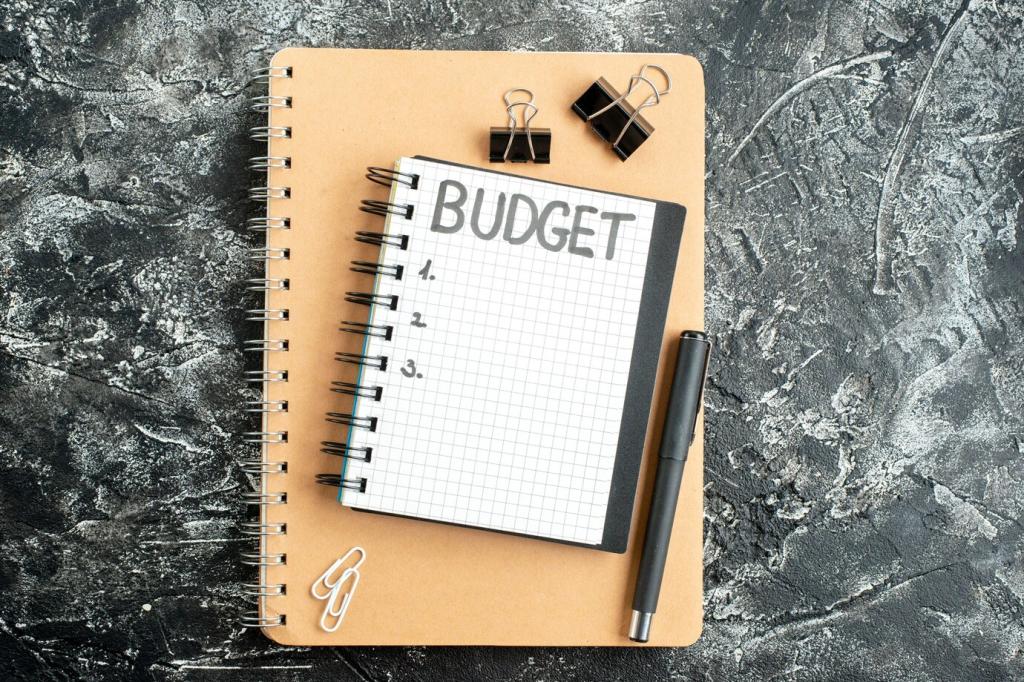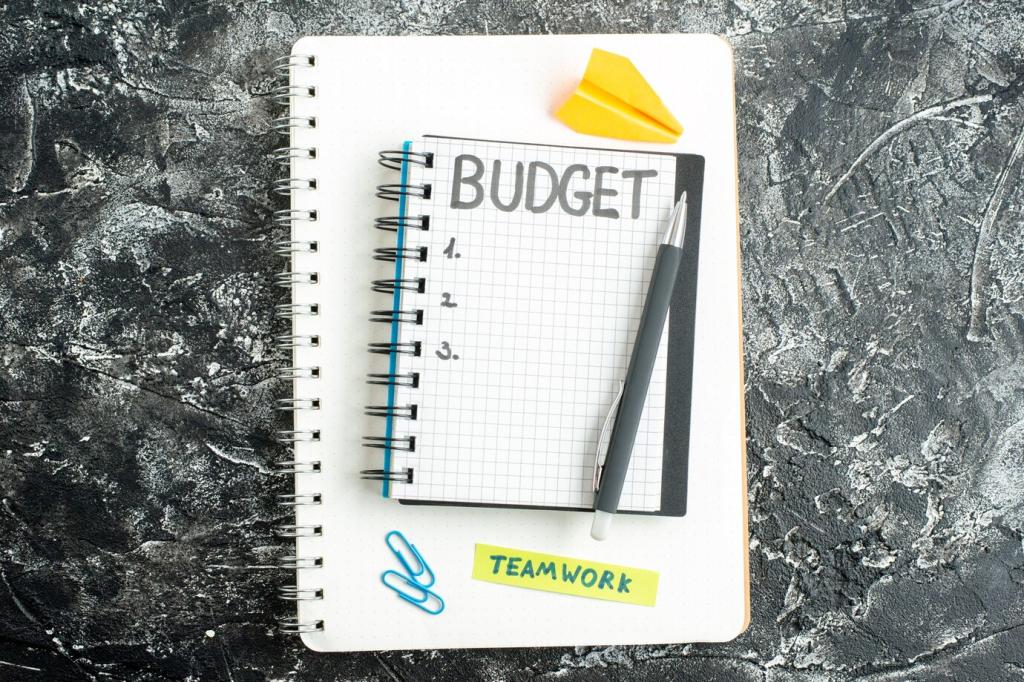Create a One-Page Starter Budget
List income, housing, utilities, food, transport, debt, savings, and fun. Keep categories broad so beginners don’t stall on details. Add a buffer line so unexpected expenses stop derailing your month.
Create a One-Page Starter Budget
Mark rent and utilities as predictable. Groceries and fuel are variable. Estimating these differently helps beginners stay realistic and calm. Revisit estimates weekly and adjust with kindness, not judgment or guilt.



